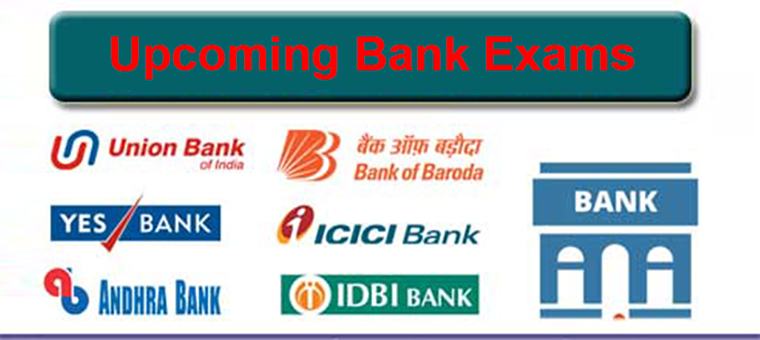HOW TO ACE BANKING EXAMS
Posted by: Admin | 22 Apr 2020

In education, an examination just tests to show the knowledge and ability of a student, and it is not the scorecard of a person's personality. But it is necessary to take examinations for a cross-check whether our learning is going in the right direction or not. So, in this article, I will be putting light on the examination which is held nation-wide, Banking exams. Around 20 to 25 lakhs of candidates appear each year for various banking exams.
As our country is developing day by day, our economy is also gaining strength. Even the remotest area has banking facilities. To manage and sustain this growth, we need a bunch of skilled people who can make the growth everlasting. There are many categories of banking exams like SBI PO, IBPS SO, IBPS PO, SSC JE, SSC CGL, UIIC, etc., which have different governing bodies like RBI, SEBI, IRDAI, PERDA, etc.
First, let us understand what these PO and SO are. The recruitment of the people cracking these banking exams takes place at different levels.

- PO (Probationary Officer): It means that the candidate appeared for a managerial position in a bank. Depending upon the bank and location, it gives a 1 to 2 years of training experience and then the post of Assistant or Deputy manager.
- Clerk: It means that the candidate appeared for a clerical position in a bank.
- Specialist Officers (SO): Depending upon the bank, it hires candidates who have a specialty in their fields like IT Officers, HR Officer etc.
You can ace any exam only when you are fully aware of what it is. Now let's have an overview of the pattern of the exam.
The recruitment is done in 3 stages in which the first two stages are of written test named as pre and main, and the third stage is the interview process. Till the last stage, the most refined and skilled people are selected.
Weightage: -
- Written test is 80%
- Interview is 20%
Syllabus

- Reasoning Ability : Coding & Decoding, Puzzles, Seating Arrangement, Logical reasoning, ranking, alphanumeric series, data sufficiency, syllogism, input and output, statement, argument & assumption.
- Quantitative Aptitude : Simplification, profit & loss, quadratic equations, data interpretation, speed, time & distance, percentage, ratio & proportion, number system, simple & compound interest, probability, mensuration, mixture & allegations.
- Computer Knowledge : Memory, input & output devices, internet, shortcut keys, computer-related terms & abbreviations, computer hardware and software, operating system, basic computer networking.
- English Language : Reading comprehension, cloze test, fill in the blanks, jumbled sentences, error detection, paragraph completion.
- General Awareness : Financial knowledge, economic status, current events across the world, financial institutions and their headquarters, static general knowledge.
- There are 100 questions from different sections, namely Quantitative Aptitude (35 Questions), Reasoning Ability (35 Questions), English Language (30).
Eligibility Criteria of various banking exams: -
- IBPS PO/Clerk
- Age limit: 20 yrs. To 30 yrs.
- Qualification: Degree in any stream from a recognized university
- SBI PO
- Age limit: 21 yrs. To 30 yrs.
- Qualification: Degree in any stream from a recognized university
- SBI Clerk
- Age limit: 18 yrs. To 28 yrs.
- Qualification: 10th and HSC or equivalent qualification with minimum 60% mark
- RRB Officer Scale - I
- Age limit: Above 18 yrs. And below 28 yr.
- Qualification: Degree in any stream from a recognized university
- RRB Office Assistant
- Age limit: Between 18 yrs. And 28 yrs.
- Qualification: Degree in any stream from a recognized university
Strategy

After knowing the syllabus, the vital thing that comes to mind is how to strategize our studies.
- Have proper planning for the whole day and divide the time into different sections where you can devote time to all the sections equally.
- There should be an adequate timetable which should be followed religiously.
- You should know your weak and strong points do that you can devote time accordingly.
- Make the best use of all the available online resources.
- Be updated with all the general knowledge. Do maintain notes if the events that are happening worldwide. And keep an eye on the economy too. This not only increases our awareness but also helps us in enhancing our verbal skills too.
- Download previous years question papers because nothing can be much more beneficial than them.
- Do make short notes of the content which you have read to have a perfect last-minute revision.
- To enroll in a test series that will help in keeping pace with time.
So, keep practicing, and then nothing can stop you!!